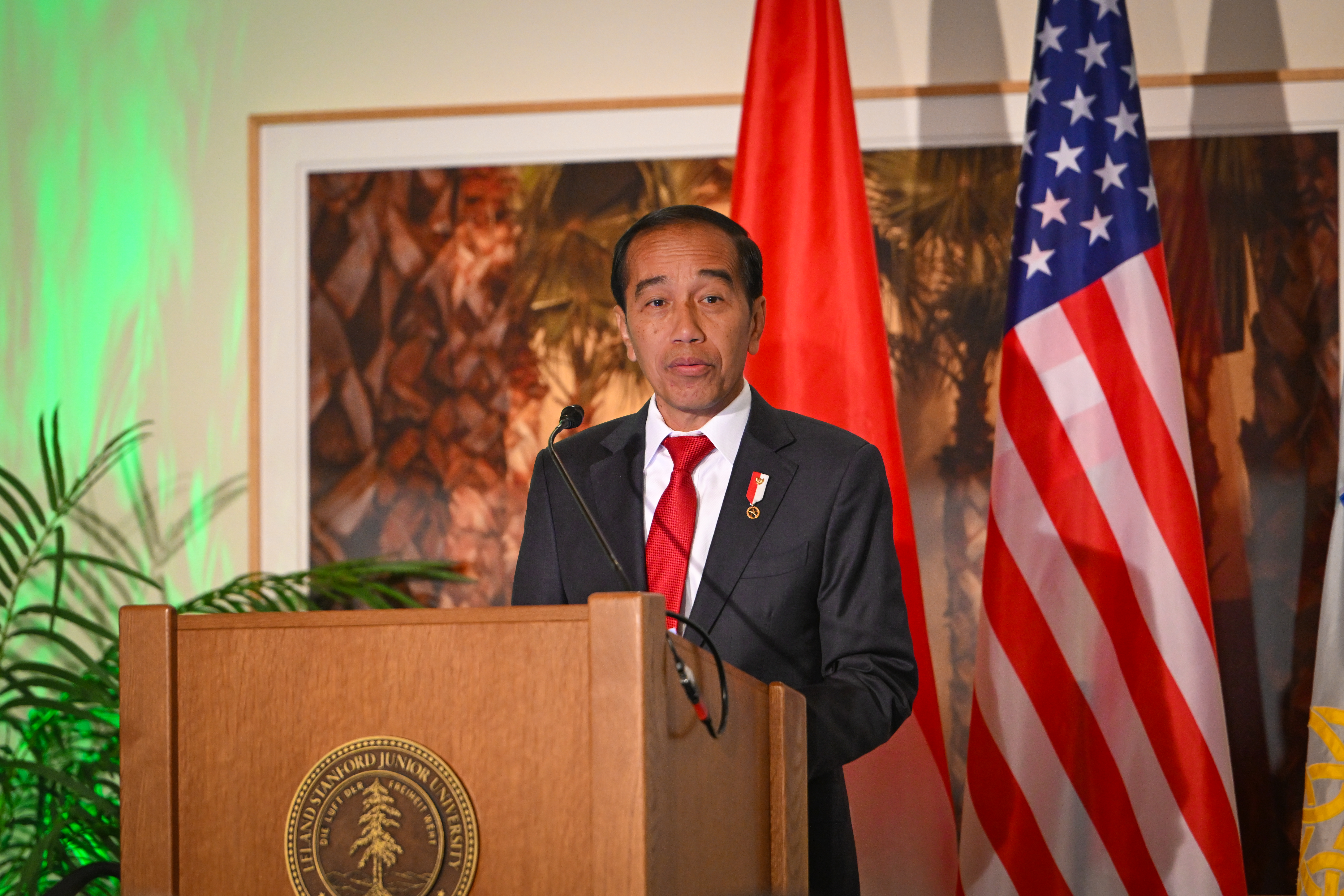A dozen Stanford students will have the opportunity to help the Indonesian ministry chart a course for the future of Indonesia’s ocean food systems, as part of a policy action lab this winter.
SUSTAIN 121: “Blue Foods for Indonesia: A Human & Planetary Health Action Lab” engages students in a holistic examination of “blue foods” — edible aquatic plants, animals and algae — around the world. That work will culminate in a report for the Indonesian Ministry of National Development Planning, commonly known by its Indonesian acronym BAPPENAS.
The course was born from a collaboration between the Stanford Center for Ocean Solutions and the Human and Planetary Health Action Lab.
“The government of Indonesia has asked us to help them bring blue foods into their national development strategy,” said Jim Leape, principal instructor for the course and co-director of the Center for Ocean Solutions. “As part of that, [we are working] with the planning ministry to develop a blue food assessment for Indonesia.”
Students will contribute to the development of Indonesian blue food systems “by looking at the food policies of other countries, analyzing data that are available on blue food systems in Indonesia, and working with Indonesian partners to understand [and] identify possible strategies for addressing challenges in the blue food sector,” Leape said.
The course is connected to a Memorandum of Understanding between Stanford and BAPPENAS, signed between the two parties in April 2023, to incorporate blue foods into Indonesia’s national development strategy.
The teaching team will include Leape, co-director of the Stanford Center for Ocean Solutions and senior fellow in the Woods Institute; Eric Hartge, research development manager at the Center for Ocean Solutions and Janet Martinez, senior lecturer at Stanford Law School.
According to Stephanie Juwana ’22, an Indonesian former LLM student, the subject of blue foods in Indonesia is “not only about the ocean.”
“We’re going to be talking about the health factors, we’re going to be talking about the social factors, we’re going to be talking about gender,” Juwana said.
Juwana said the course material is also heavily connected to Indonesia’s upcoming presidential election, as blue foods grow increasingly important in relation to concerns of impaired growth in children from poor nutrition.
“Blue Foods for Indonesia” is the third generation of a series of action labs that the Stanford Center for Ocean Solutions has previously created, including “Oceans by Design” and multiple iterations of “The Outlaw Ocean.”
These previous courses have similarly hosted small cohorts of graduate and undergraduate students who, during the course, created deliverables for external partners, ranging from policy briefs to longer research reports.
“The value that these types of courses have is exposing the challenge of some of these problems, but also empowering students to feel like there are ways we can combine ideas to move towards something that could be impactful,” said Laura Anderson ’21, who took both prior courses in spring of 2020.
“If you have a big complex problem, or if you have a potential solution, how do you think through whether it’s actually practical?” she said. “How do you think through windows of opportunities for change? The mindset and approach in the course was something that I found really valuable and I’ve tried to take with me in future work.”
Kathy Burke, the human and planetary health lead at the Stanford Woods Institute, has been pushing to develop this course for the past six years.
“I’ve always loved building teams that cross disciplines and wrestle with what they call wicked problems — really complex problems,” said Burke. “I think this action lab is a chance for that to happen.”
Another alum of “The Outlaw Ocean,” Natasha Batista ’20, said students had the opportunity to interview many high profile investigators. The report they made was used by Conservation International, FishWise and other NGOs focusing on human rights in the open ocean.
“That was a really exciting outcome,” Batista said.
Former student Josheena Naggea Ph.D. ’22, who now works at the Center for Ocean Solutions, said the class takes an integrated and impactful approach to its collaboration with the Indonesian government.
“It’s such a nice window into applied, impact-driven work in places that need it, and in a way that’s not akin to parachute science,” she said. “It’s not like we’re going somewhere and just doing work that serves us … This is a collaboration where impact goes beyond just one NGO or university.”
